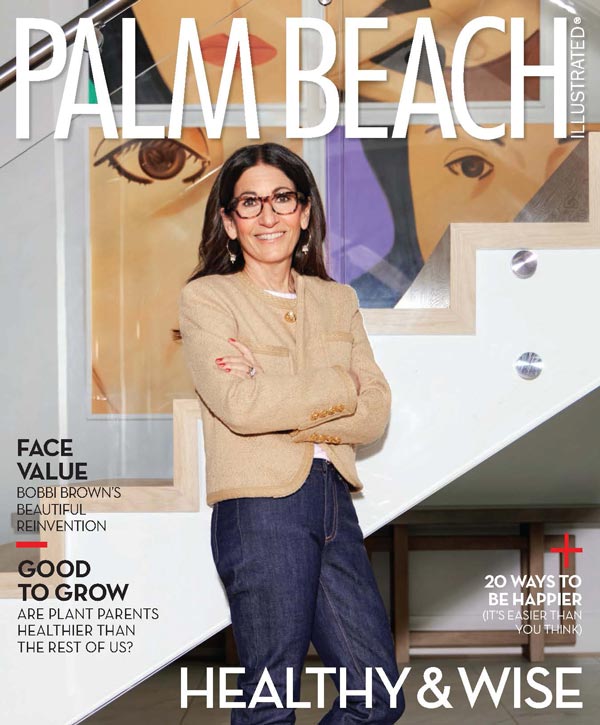From February 20-22, Palm Beach Opera will mount the world premiere of Enemies, A Love Story. Composer Ben Moore wrote the score, which is based on the Isaac Bashevis Singer novel of the same name. Set in New York City in 1948, the opera follows Holocaust survivor Herman Broder as he navigates a new country and a complicated love life. PBI.com spoke with Moore about the opera and his writing process. 
PBI.com: How did this project come to be?
Moore: It began when my friend and supporter Sandy Fisher [vice chairman of the Palm Beach Opera board] moved here just coincidentally not too long ago, and he is the one who suggested I write an opera in the first place. This was way back in 2006. Both Sandy and I loved the idea of creating a work that was lyrical and melodic, which some contemporary works are that, but many are more in the dissonant, modernist style.
When I finally decided I was going to do it, I set about looking for properties. I was looking for material that would give a lot of opportunity for big, passionate and lyrical moments. And one thing that always has fascinated me is stories about immigrants or refugees, the idea of people being uprooted from their homes and trying to make it in another land. So I looked at a lot of books and movies and plays around that theme. I came across Enemies and thought it had a lot of what I really wanted, not only in the theme of the story but also the characters are very complex and rich and it affords a lot of opportunity for different kinds of music, different musical influences.
Why are you drawn to stories about immigrants and refugees?
I have an aunt, who I was very close to growing up, who is a survivor of the Holocaust. She’s still with us today; she’s in her late 80s, but she and her sister escaped Nazi Germany in 1939 just before the boarder closed, and her whole extended Jewish family, they were all murdered. But she and her sister and her parents were able to get out just before the boarders closed. In her later years, she became—she didn’t talk about her experience for a long time—but she became a spokesman for remembering the Holocaust, so she talked at high schools and other places around New York state.
How is writing an opera different from writing other types of compositions?
I would say it’s not that different from the other kinds of music that I’ve written. Whether I’m writing a song or even if it’s an instrumental piece, there’s always got to be this dramatic arc to what I do, or at least that’s the way I like to approach it. So, opera is just a lot more developed and complicated in a way. But music itself is drama as well. Now, that being said, if you’re writing an opera, you’re writing for these operatic voices that have certain capabilities. That is something I know very well because I’ve loved opera from a child and I know about sopranos and tenors and basses; my mother was a mezzo-soprano and she sang Carmen. That’s something that’s in my background, and I have a real feel for opera and what opera can do and how I could go about doing it.
What does lyricist Nahma Sandrow bring to the project?
She is a Yiddish scholar. [She’s written] books on Yiddish theater and her knowledge about that whole aspect is very helpful to the project…She loves the kind of music that I love. And I think, in her writing, there is some of that same sensibility. If someone loves lyricism and melody then, chances are, they’re going to be drawn to a certain kind of simplicity—not to mean simple minded, but simplicity in a certain directness and a certain lyricism and a kind of poetic quality to writing.
How did the content of the story and the Jewish influence affect the musical style?
What draws any composer to a subject matter that’s more or less exotic in some way? You look back at the history of composers and there are so many examples of composers seeking out material that has some exotic quality, even if it’s Puccini writing Madama Butterfly or Bizet writing Carmen or Verdi writing Aida—these are somewhat exotic subjects but I think what they’re able to do is combine their musical language with some flavor of a different time and place. So, I like to think I was doing that with Enemies; I’m using my musical language but there’s that Jewish flavor that comes in from time to time.
Did you have a particular production style in mind when creating the opera?
I loved the setting—New York City in the late 1940s is very specific and it just had a nice milieu. I never had an idea that the opera should have a high concept. But the fact is, the time and place of the story is already so rich and evocative that I always thought it should be a really authentic take on this time and place.
How did Palm Beach Opera come to host the world premiere?
The Sandy Fisher connection was just a funny coincidence because I knew Sandy in New York and he got me started writing this opera way back in 2006, long before he had any association with Palm Beach. And then Palm Beach Opera took on Enemies in their One Opera in One Hour; Daniel Biaggi took on the project of Enemies because I sent him the materials. It was really Daniel who chose Enemies for Palm Beach.
What has been the most difficult aspect of the process so far?
I guess because it’s my first opera, the difficult aspect is that it’s such a big project. There are so many aspects to it, from getting the thing to work dramatically to balancing the different voice parts and ensembles and then the orchestration. It’s wonderful and exhilarating but there’s all that time. The challenge has been keeping an eye on the big picture while refining the details.
What has been the most rewarding aspect?
When I hear it back, especially for the first time, that is extremely rewarding for me. When I feel wow, this really does work. And also, when I just hear someone put his or her personal take on something that I’ve written—even to a level that I didn’t anticipate—there’s nothing like that.
What do you hope audiences take away from this production?
It’s interesting because this is a story that really is a very dark story…it’s a dark comedy but it’s deeply tragic. Yet, I really think that people will come away, and Nahma and I have worked to make this happen, at the end they are going to feel uplifted and they’ll walk away with the feeling that life is worth living and that there’s real hope for the future. I think that’s what Singer is getting at too in his novel. It comes together at the end, and that’s what I think people will come away with.









Facebook Comments